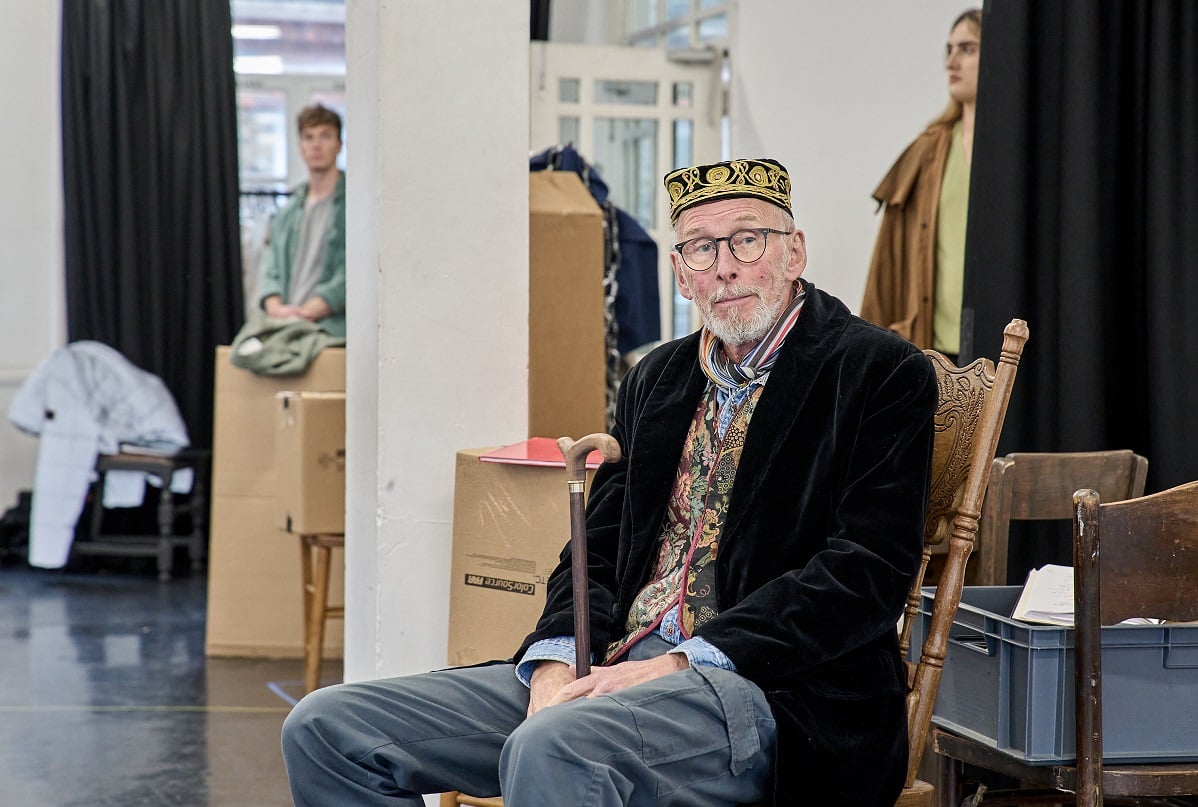
Rehearsal for A Christmas Carol at Nottingham Playhouse
Photo: Ben Chamberlain
Omicron has little impact on theatre sales
Against fears the new variant might scare off audiences, data suggests ticketing and income has remained steady so far.
The emergence of the Omicron variant has had little impact on theatre sales and revenue, initial data suggests.
Tracking for 270 theatres conducted by Purple Seven showed peak sales for the year of 158,000 tickets on Friday November 26 followed by a sharp fall to about 100,000 on Saturday – the day we learned Omicron had entered the UK.
But sales and revenue recovered within a couple of days and remain at about 90% of 2019 levels.
READ MORE:
"Maybe there was a 48 hour wibble but by Monday it picked back up again," Purple Seven Managing Director David Brownlee told ArtsProfessional, explaining that sales normally peak on Fridays and decline on Saturdays, albeit not usually by such a margin.
The data, which gives the most up-to-date insight into audience confidence, is at odds with sobering projections that up to a third of regular patrons won't return this winter.
Recent surveying by The Audience Agency (TAA) found pantomime ticket sales in October were half what they were at the same point in 2019.
While each agency analyses different cohorts – TAA focuses more on the subsidised sector, for example – Brownlee said that, "with fingers crossed, there's not a huge fall off in confidence; it's still looking good".
Supply versus demand
Speaking before new restrictions were imposed by the Government's Plan B, Brownlee said "the worry is more supply than demand".
Belgrade Theatre was forced on Wendesday (December 8) to postpone performances of Beauty and the Beast after members of the panto company tested positive for Covid-19.
Changes to isolation requirements have removed the threat of a 'pingdemic' among theatre workers; however, Omicron is expected to double its reach every three days and experts warn it may cause more serious illness than first thought.
And, as the TUC recently revealed, up to one in eight arts workers are ineligible for statutory sick pay.
Many theatres' stance on mask wearing had hardened from 'encouraged' to 'mandatory' in the days leading up to the Plan B announcement, citing a need to protect staff as well as patrons.
Audience willingness to attend has not increased since June, according to TAA. Its latest data, collected in September, said the number of people who are waiting for a "significant reduction in risk from Covid" has grown.
Brownlee said the public want safety measures in place but not all patrons will be on board, regardless of whether changes are driven by company or Government policy,
"Particularly in England you get people coming in who haven't had to wear masks now having to wear masks and wanting to return tickets."
Christmas miracle?
Revenue from ticket sales in Purple Seven's cohort is up £3m on this time last year.
"If you had said that to me in June of last year, I wouldn't have believed you," Brownlee said.
There is reason for optimism, he added, even though panto sales remain lower than hoped.
"November is traditionally the month where most tickets are sold and December is close behind.
"The early group sales just weren't there so we've been playing catch up – but catch up is going well."
Join the Discussion
You must be logged in to post a comment.